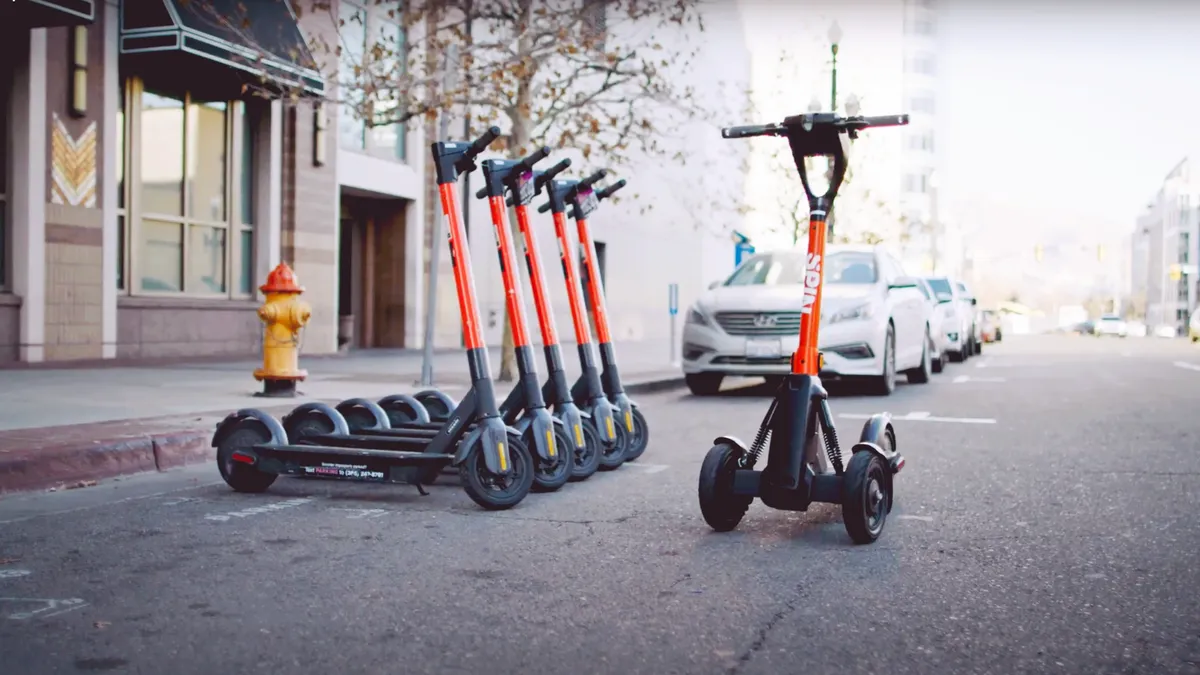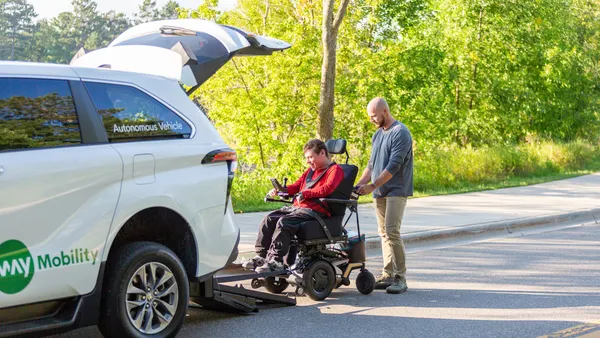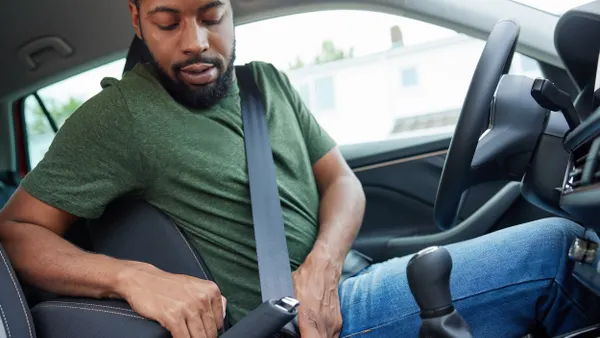Dive Brief:
- Ford-owned micromobility firm Spin announced on Wednesday an exclusive partnership with software company Tortoise to bring teleoperated three-wheeled e-scooters to cities across North America and Europe in 2021.
- The Spin S-200 scooters, co-developed with Segway-Ninebot, feature turn signals, three independent braking systems and two front wheels for enhanced rider stability. The vehicles are outfitted with Spin Valet, a platform that enables a remote operations team to move misplaced scooters using Tortoise's repositioning software and the vehicle's built-in cameras.
- Spin will debut the S-200 model in Boise, ID, where 300 scooters will be deployed this spring. The company also plans to offer an in-app "scooter-hailing" feature later this year for riders to schedule or request a real-time scooter pickup within a several-blocks radius.
Dive Insight:
U.S. media outlets have told colorful stories of "self-driving scooter-bots" since 2019, when Tortoise and GoX debuted the world's first teleoperated scooter fleet with Curiosity Lab at Peachtree Corners, GA. Many have misclassified the technology as "autonomous" — these scooters don't actually drive themselves — though it does suggest mobility is gravitating toward autonomy. (This is a concept that Google mocked as an April Fools' Joke just five years ago.)
Ben Bear, chief business officer at Spin, told Smart Cities Dive that remote repositioning and eventual scooter-hailing can address "one of the big challenges" with shared micromobility: service reliability. "We can make sure that there's always a scooter outside of your house," he said.
More importantly, the teleoperated features can clear sidewalks and pathways of e-scooters in a matter of minutes for improved accessibility of public space. This comes at a cost-savings for Spin: In San Francisco, for instance, parking issues average a 52-minute response time from Spin, costing thousands of dollars in citations. Remote repositioning can ensure affordable regulatory compliance, Spin said.
Bear admitted he had some doubt that cities would be open-minded to teleoperated scooters, considering micromobility's infamy for bombarding ill-prepared cities with unprecedented technologies. Yet, he found Tortoise had captured the interest of more than a dozen cities hoping to pilot their software, with Boise showing particular excitement for the technology. Spin is also eyeing a launch of the S-200 scooters in England's Milton Keynes.
Tortoise's repositioning software is best compatible with three-wheeled e-scooters to ensure stable repositioning. Under its new partnership, Tortoise "won't be working with any other mobility partners for a period of time of longer than a year," Bear said, yet even that window opens the door to competition as other operators explore similar devices.
And while there's a possibility that riders could take advantage of the technology by dismissing parking responsibilities, S-200 riders are still required to take a photo at the end of their ride to confirm proper parking, Bear said. "Ultimately we think most of the riders of these services want the services to continue, and so they're willing to do small things like park correctly," he said.
The three-wheeled vehicles are currently meant to complement Spin's fleet offerings, though it remains to be seen if the S-200 model will outlive its two-wheeled predecessors.
"Our thesis right now is that different folks like different modes," said Bear, adding that Spin will experiment with e-bike offerings this year. "Does the three-wheeled device become the dominant scooter for Spin? I suppose it could happen, but we'll have to see how people react to it."











